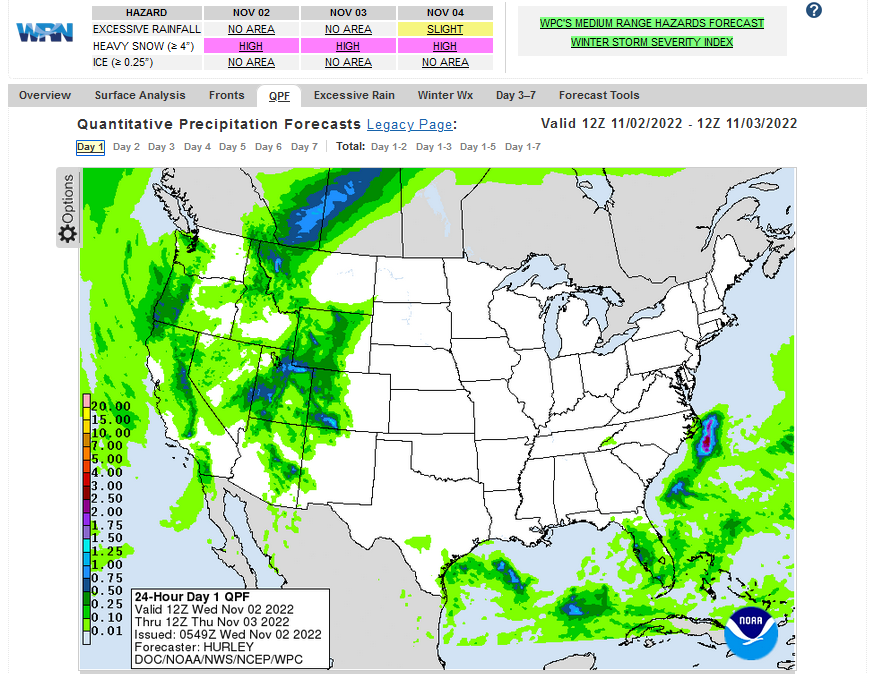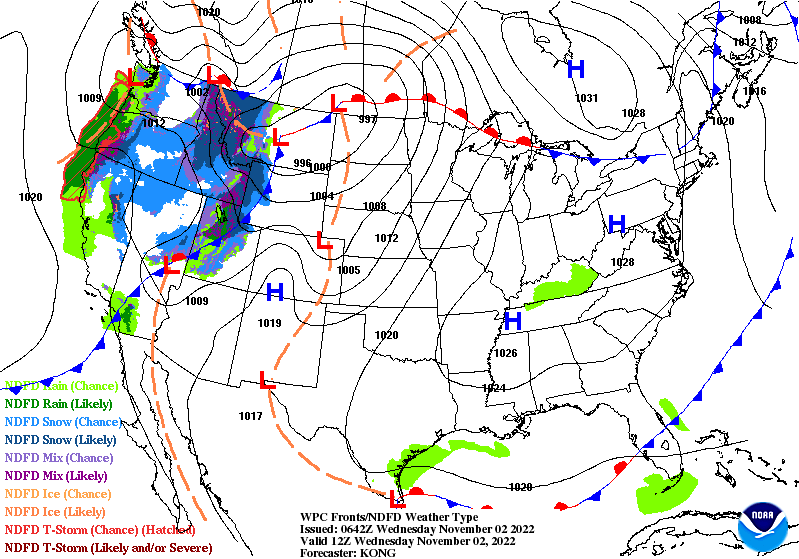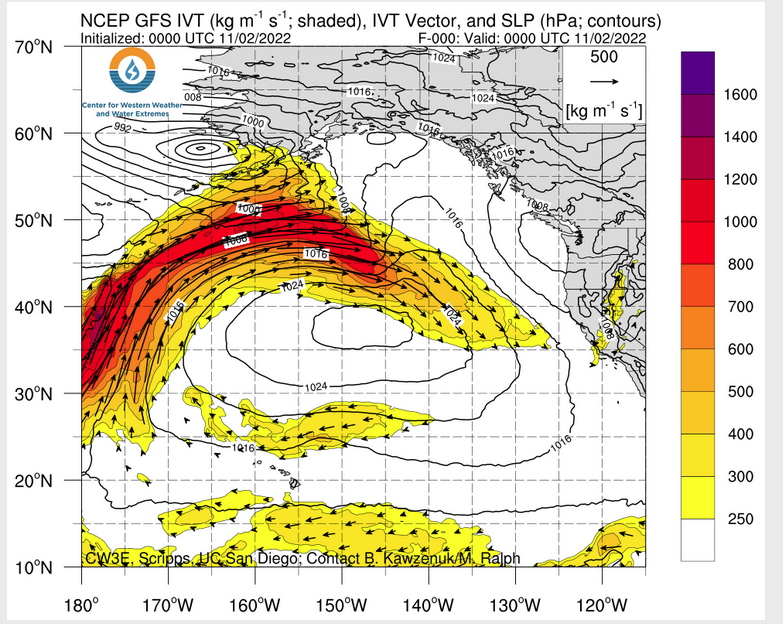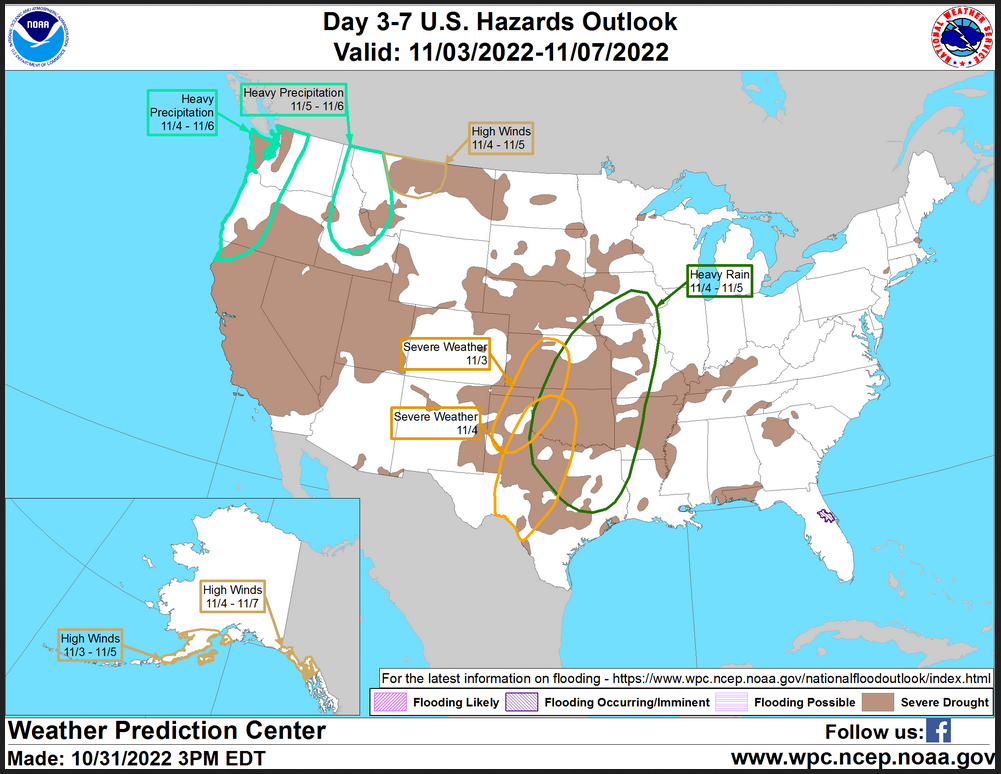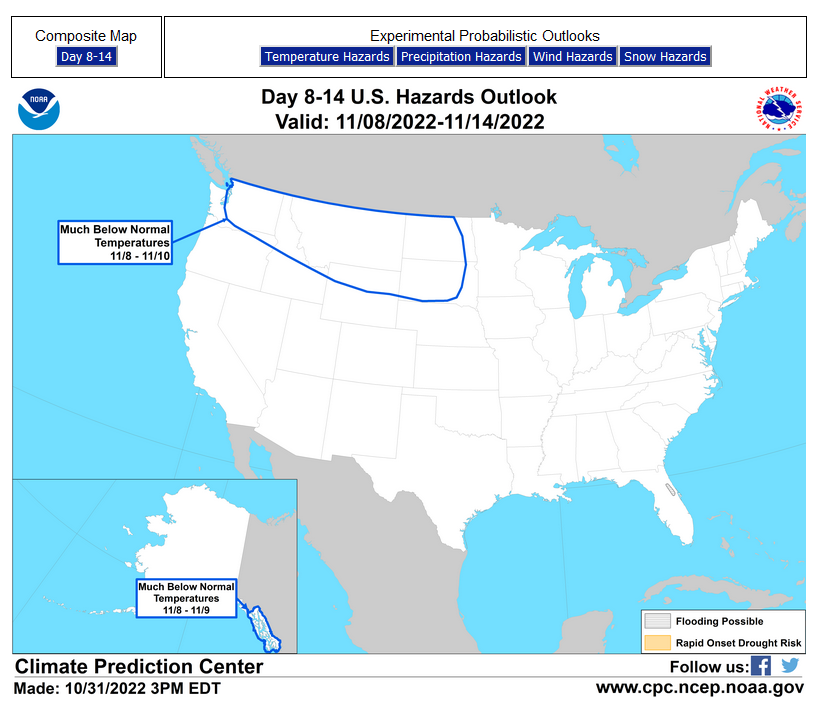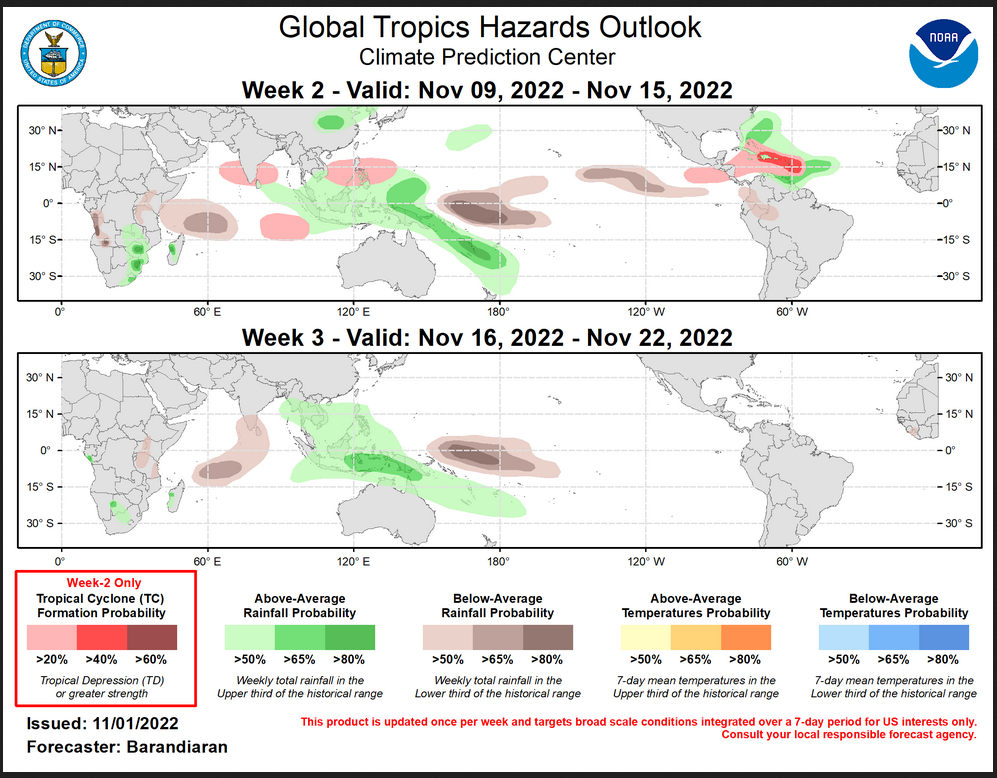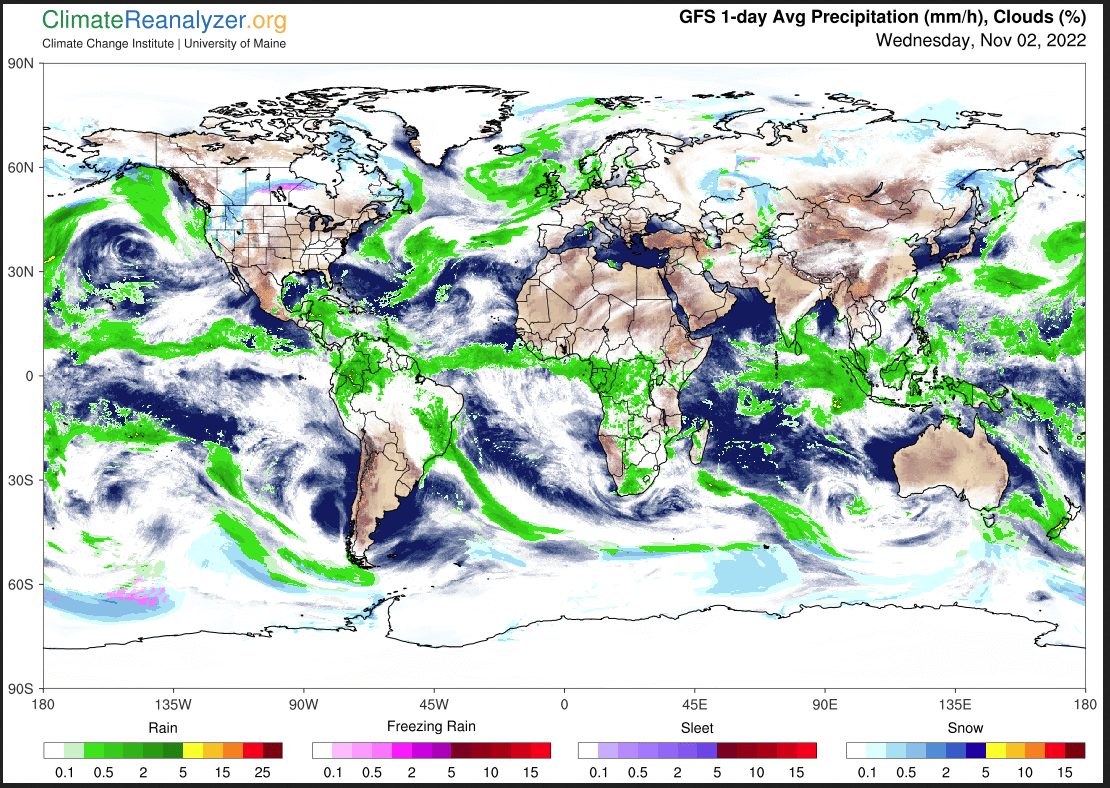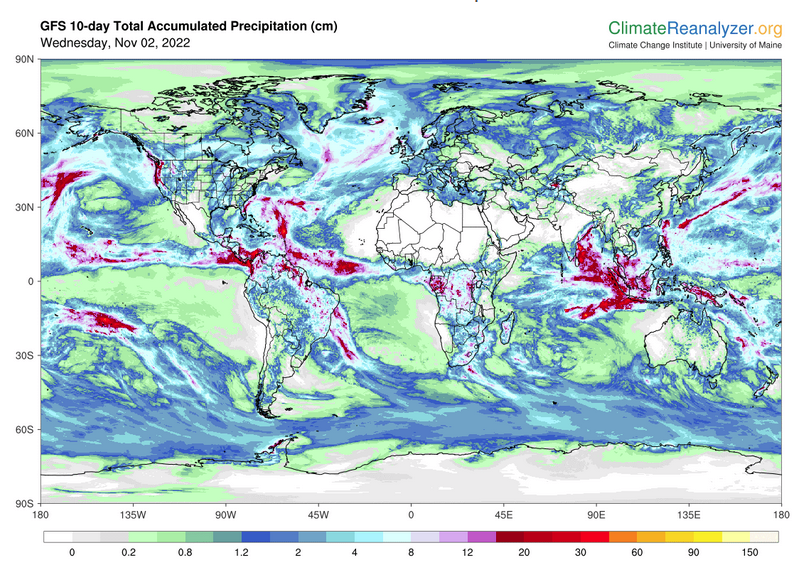Here is what we are paying attention to this evening and the next 48 hours from this morning’s (Tuesday) NWS Forecast.
...Heavy snow today along the Cascades, Sierra Nevada, and portions of the northern Rockies... ...Heavy mountain snow moving into the central Rockies possibly spreading into the central/northern High Plains on Thursday into early Friday... ...Much colder across the western U.S. but very warm today across much of the northern/central Plains...
Continuation of the NWS Short Range Forecast (It is updated twice a day and these updates can be found here.
An amplifying upper-level trough in conjunction with a potent cold front will usher much colder air through the western U.S. while delivering a round of heavy snow across the higher elevations during the next couple of days. This system will continue to lower snow levels over the Cascades and along Sierra Nevada through today as colder air penetrates farther inland along with strong and gusty winds. By Thursday, the mountain snows should shift east into the northern and central Rockies, with the high elevations of the central Rockies mostly likely seeing heavy snow, which will result in reduced visibility and hazardous driving conditions. In addition to the mountain snows, the potent trough will bring a big cool down through the western U.S. through the next couple of days. In contrast, warmer than average temperatures will persist across the eastern two-thirds of the country under the influence of an expansive high pressure system centered over the Northeast. In fact, some record high temperatures are forecast today at certain locations across the northern Plains to the upper Midwest under a dry southerly flow. The dry and breezy conditions will also promote fire danger across the northern and central High Plains today. By later on Thursday into early Friday, much colder air will surge into the northern Plains behind the potent cold front. Conditions will rapidly change from dry and warm today over the central High Plains to cold and snowy by Thursday night into early Friday. Strong and gusty winds from the north will also add to the wintry feel across the northern and central High Plains. Meanwhile, the next moisture surge from the Pacific is forecast to reach the Pacific Northwest later on Thursday with mountain snow and lower elevation rain rapidly overspreading the area. In contrast, mild and pleasant autumn weather is forecast for the eastern U.S. under the expansive high pressure system.
Current forecast of heavy precipitation (Updates can be found HERE)
Maps that relate the forecast to geography can be found by clicking Here for Day 1 and Here for Day 2.
Here is a 60-hour animated forecast map that shows how the short-term forecast is expected to play out
If it needs to be updated click here.
ATMOSPHERIC RIVERS
Click HERE to update. Here is some useful information about Atmospheric Rivers.
HAZARDS OUTLOOKS
Click here for the latest complete Day 3 -7 Hazards forecast which updates only on weekdays. Once a week probably Monday or Tuesday I will update the images. I provided the link for readers to get daily updates on weekdays. Use your own judgment to decide if you need to update these images.
Worldwide Tropical Forecast
(This graphic updates on Tuesdays) If it has not been updated, you can get the update by clicking here This is a new approach and covers weeks 2 and 3 not weeks 1 and 2. It has more information but I am having trouble getting used to it. As usual, it comes with a discussion which is below
Detailed Maps and Reports for the Western Atlantic and the Pacific Oceans
Below are four maps that summarize the situation for the Atlantic, Eastern, Central Pacific, and Western Pacific. Additional information can be accessed by clicking HERE
First the Atlantic
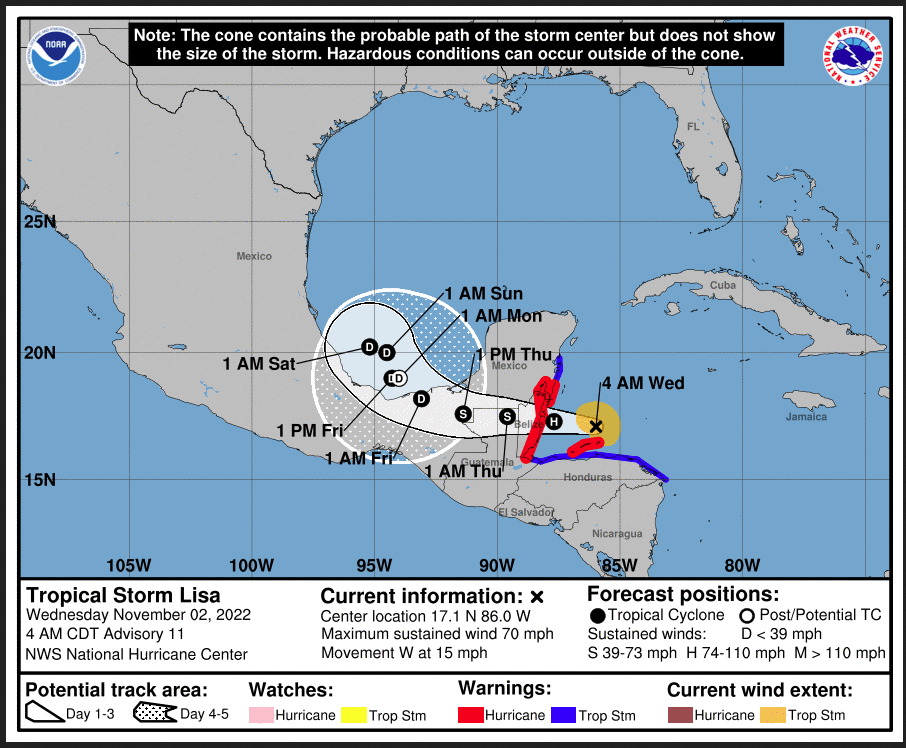
Click to view the forecast map and have access to additional information https://www.nhc .noaa.gov/gtwo.php?basin= atlc&fdays=5
Then Eastern Pacific
Click to view the forecast map and have access to additional information https://www.nhc.noaa.gov/gtwo.php?basin=epac&fdays=5
Then Central Pacific
Click to view the forecast map and have access to additional information https://www.nhc.noaa.gov/gtwo.php?basin=cpac&fdays=5
And the Western Pacific
Click to view the forecast map and have access to additional information https://www.metoc.navy.mil/jtwc/jtwc.html
Some Intermediate-Term Outlooks
Links to “Outlook” maps and discussions for three time periods. Days 6 – 10, Days 8 – 14, and Weeks 3 and 4. An outlook differs from a forecast based on how NOAA uses these terms in that an “outlook” presents information from deviation from normal and the likelihood of these deviations.
You have to click on the links because they do not update automatically and I do not want to have stale images in the article. But it is not difficult to click on a link and you get a large image plus a discussion. On Fridays in a separate article, we will show the images and provide a link in this article that article. But remember what you will see is the images as of Friday. But here you can get the current images simply by clicking on them. Then hit the return arrow at the upper left of your screen to return to the article. You will not find this information easily anywhere else.
Right now you can find these maps here (We show them every Friday there but you can click above and find them).
Worldwide Weather
Below is the current or short-term precipitation forecast which can be updated by clicking HERE Additional maps can be obtained HERE.
Month to Date Information
Month to date Temperature can be found at https://hprcc.unl.edu/products/maps/acis/MonthTDeptUS.png
Month to date Precipitation can be found at https://hprcc.unl.edu/products/maps/acis/MonthPNormUS.png

